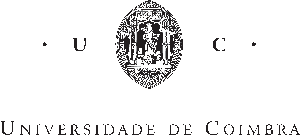
What distinguishes our School?
ALICE Summer School stems from the Epistemologies of the South, an epistemological proposal based on the struggle against the waste of experience, consequence of the epistemic domination lettering as irrelevant what does not fit in the narrow canon of modern knowledge. Bred from the challenge of dialogue between knowledges, it is part of the ambitious project of building a more emancipatory cartography, where there is a place for spoken languages, histories, policy options, resistances and struggles excluded from the official narratives or classified as inferior and irrelevant.
We propose diversity and unity. On the one hand, we recognize the extraordinary differences that make up the global South, on a macro and micro level, and we are aware that stressing the singular means continuously adjourning deference to the epistemological diversity of the world. We bring experience and knowledges from Africa, from Latin America, from Asia. On the other hand, we believe that the common colonial experience allows the establishment of a global South, where the post-colonial condition is increasingly imposed in the analysis and characterization of specific political circumstances.
This Summer School will run as a convivial laboratory, in which participants with different backgrounds and experiences and academics from various contexts and thematic areas will seek answers for the emerging struggles. Parting from clues and challenges brought by the professors, in an, always critical, spirit of sharing of knowledges, we intend to broaden perspectives, expand the discussions and collectively reach further.
The epistemological imaginary present in this Summer School goes beyond the conventional scientific record. Recognizing the existence of knowledge beyond the walls of academia, it is intended that the artistic production challenge the political imagination and thus leading to subversive creativity, seeking to enhance the senses of the world. Accordingly, this course is also made up of art and the experiences of flavours.
The moments outside of the conventional classroom spaces are as important as the seminars. As coordinators of seminars, artists will challenge participants and inspire them to collectively dream and explore the unsettling alchemy of art and social justice.
We propose ten days of collective construction, composed by different moments, which include seminars, dance workshops, screenings, informal conversations, leisure moments, and gustatory challenges, all of them relevant to the collective construction of a more plural and inclusive knowledge, with social justice as a goal.




